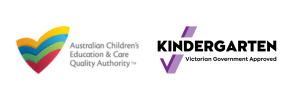Dos and Don’ts for Parenting in the Digital Age
To further guide your parenting practices in the digital age, consider the following dos and don’ts:
Dos:
- Doset clear, age-appropriate guidelines and boundaries around technology use.
- Doencourage a balanced lifestyle that includes offline activities and social interactions.
- Domaintain open, non-judgmental communication with your children about their digital experiences.
- Doeducate yourself and your children about online safety, privacy, and digital citizenship.
- Douse parental controls and monitoring tools in an age-appropriate manner.
- Doencourage responsible digital creation and the development of digital literacy skills.
- Domodel responsible technology use and prioritise face-to-face interactions.
- Docollaborate with schools and communities to promote digital well-being.
- Doregularly reassess and adapt your family’s approach to technology use.
- Docelebrate the benefits and opportunities of the digital age while mitigating the risks.
Don’ts:
- Don’tuse technology as a constant babysitter or reward for good behaviour.
- Don’tignore the potential risks and challenges associated with the digital age.
- Don’tshy away from discussing sensitive topics, such as online safety and digital citizenship.
- Don’trely solely on parental controls and monitoring tools without open communication and trust.
- Don’tunderestimate the importance of offline social connections and experiences.
- Don’tcriticise or judge your children’s online interests and experiences without understanding them.
- Don’tset unrealistic expectations or overly restrictive rules around technology use.
- Don’tneglect your own digital well-being and responsible technology habits.
- Don’tassume that your children are inherently savvy about navigating the digital world.
- Don’t be afraid to seek help and support from professionals, educators, and other parents when needed.
What to Know: Key Facts and Figures About Children and Technology
To further inform your parenting practices in the digital age, it’s essential to be aware of some key facts and figures related to children and technology use:
- According to a 2019 Common Sense Media report, children aged 8-12 in the United States spend an average of 4 hours and 44 minutes per day using screen media, while teens aged 13-18 spend an average of 7 hours and 22 minutes per day.
- The same report found that 53% of children own a smartphone by age 11 and 69% by age 12.
- A 2018 Pew Research Centre survey revealed that 95% of teens have access to a smartphone, and 45% say they are online “almost constantly.”
- Cyberbullying is a growing concern, with 59% of U.S. teens having experienced some form of online harassment or bullying, according to a 2018 Pew Research Centre survey.
- The COVID-19 pandemic has significantly increased children’s reliance on technology for remote learning, socialising, and entertainment, potentially exacerbating the challenges associated with excessive screen time and online safety.
- Positive uses of technology, such as educational apps, online learning resources, and digital creativity tools, have been shown to support children’s learning and development when used in moderation and with parental guidance.
- The American Academy of Paediatrics recommends that parents create a family media plan, which includes setting consistent boundaries around screen time, monitoring children’s online activities, and designating media-free zones and times in the home.
- Digital literacy and critical thinking skills are increasingly important for children to navigate the vast amount of information available online. A 2019 Stanford History Education Group study found that 96% of high school students struggled to evaluate the credibility of online sources.
- Parental involvement and open communication are key factors in promoting children’s digital well-being. A 2019 study published in the Journal of Youth and Adolescence found that parental monitoring and communication about online activities were associated with lower levels of problematic internet use among adolescents.
By staying informed about these facts and figures, parents can make more informed decisions about their children’s technology use and adapt their parenting strategies to address the unique challenges and opportunities of the digital age.
Conclusion
Parenting in the digital age presents both challenges and opportunities for families navigating the ever-evolving landscape of technology. By understanding the potential impacts of the digital age on children’s development in Corio & Truganina and well-being, parents can develop effective strategies to foster healthy habits and responsible usage.
- Through setting clear guidelines, encouraging a balanced lifestyle, maintaining open communication, and promoting digital literacy and safety, parents can help their children harness the benefits of technology while mitigating the risks.
- By modelling responsible technology use and collaborating with schools and communities, parents can create a supportive environment that empowers children to thrive in the digital age.
- Remember, parenting in the digital age is an ongoing process that requires flexibility, adaptability, and a commitment to lifelong learning.
- By staying informed, engaged and open to new approaches, parents can successfully navigate the challenges and opportunities of the digital age, helping their children develop the skills, values, and habits necessary for success in an increasingly connected world.
At Cheeky Clouds, we are dedicated to supporting parents in their journey through the digital age. We offer a range of resources, workshops and community events designed to empower parents with the knowledge, tools, and strategies needed to foster digital well-being within their families. Join us in our mission to create a safer, more responsible and empowering digital world for the next generation.



